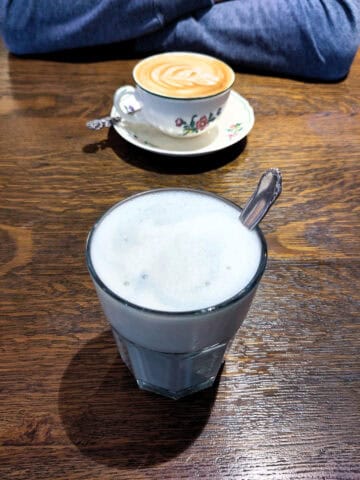
This is the first piece in a 2-part series on how to sleep better, looking at the importance of slumber for our physical and mental health and strategies to help you get back to sleep if you wake up in the middle of the night.
The second piece highlights what you can do to calm your mind in the evening, prime your body for sleep, and set up your bedroom for a restful night.
Everyone does it: Elephants (4 hours), tigers (15 hours), bats (19 hours), and humans (8 hours). Not even primitive worms, which predate vertebrates on Earth, can do without it. All beings sleep! Some more, some less, but humans are the only species that willfully deprive themselves of sleep. Over the past 50 years, our average sleep duration on working days has dropped by an hour and a half, from 8.5 hours to just under 7 hours. About one-third of people sleep less than six hours a night; 80% of professionals in Germany report suffering from sleep disorders - that's about 34 million people.
It's not just the adults sleeping less nowadays than they used to. A study of children's sleep data from 1905 to 2008 found that their sleeping time has declined by nearly one minute per year - children snoozed an extra 1.5 hours in 1905 than in 2008.
Why better sleep is good for you
We, humans, are sleeping as little as never before.
There are many reasons for this trend. The pressure to perform is increasing at work and in our leisure time – along with the stress level. In our modern world, we see productivity as the purpose of life and admire workaholics, but idleness and relaxation fall by the wayside. The list of tasks and things we want to do or experience at the office and at home is long. "There are simply not enough hours in a day," people would say with a smirk, reaching for legal stimulants like coffee, coke, or energy drinks and skimping on the number of sleeping hours rather than the number of tasks.
The fact that this is a false economy is not only evident by how creepy we feel after an overly short or "bad" night. Lack of sleep not only affects how we feel the next day, but it also impacts our health, our mental and physical performance, and even the quality of our personal relationships.
Dr. Valery Gafarov conducted a representative study for the WHO (World Health Organization) and explained: "Sleep is not a trivial issue. In our study it was associated with double the risk of a heart attack and up to four times the risk of stroke. Poor sleep should be considered a modifiable risk factor for cardiovascular disease along with smoking, lack of exercise and poor diet. "
Matthew Walker, professor of neuroscience and renowned sleep researcher, lists other health benefits in his TEDTalk Sleep is your superpower: Getting enough sleep prevents Alzheimer's, supports blood sugar regulation, a functioning immune system, and maintains a healthy weight. In addition, lack of sleep leads to mood disorders and has been linked to increased rates of anxiety and depression.
"Sleep, unfortunately, is not an optional lifestyle luxury. Sleep is a non-negotiable biological necessity. It is your life-support system, and it is Mother Nature's best effort yet at immortality. "
Matthew Walker
Sleep is essential, even vital. No one should take a lack of sleep lightly. It is, therefore, worth looking at your sleep patterns. These are some questions you can ask yourself: Can you fall asleep quickly? Do you sleep through the night? How do you feel when you get up in the morning? Like a newborn baby or like a zombie? Do you feel well-rested like Sleeping Beauty after her hundred years of slumber, or exhausted and tired as if you had hardly slept a wink?
If you - like most of the German population - are affected by a sleep disorder and regularly feel both stressed and overtired, a restful night's sleep might seem like a beautiful, elusive dream. The good news is that everyone can learn good sleep habits. A few lifestyle changes can do the trick if the leading cause of poor sleep is mental restlessness (due to anxiety, overwork, or spinning thoughts). Your slumber must be prioritized and planned (at least in the transition phase from bad to good sleep until the latter becomes routine). You can set up good chances for the magic 8 hours of sleep by implementing a relaxing bedtime routine, doing things to wind down one hour before going to bed, and trying to wake up and sleep at the same time every day.
Here are a few suggestions for getting back to sleep if you wake up in the dead of the night. At the end of the article, you will find more resources like links to articles, documentaries, and books if you want to explore the mysteries of human sleep further.
Awake at 3 a.m. - now what?
Aah, what a blessing to fall asleep quickly ... but then you wake up in the middle of the night! At 2 a.m., or 3, or 4. Preferably every night at the same time. Falling asleep again is out of the question, thanks to your buzzing brain, which is raking up yesterday's worries and stoking fears about tomorrow's tasks. Here are a few tips on how to quiet your mind and get sleepy (again):
Ignore the clock
This is an exercise in discipline! The mind automatically wants to know what time it is, how many hours you've already slept, and how much time is left before the alarm clock rings. Then it does the math at lightning speed ... and always comes to the same conclusion: Not enough sleep! Often this statement is accompanied by fears, worries, reproaches, or feelings of self-pity, which can read something like this: "You'll be totally exhausted tomorrow and won't get anything done. It's going to be a bad day!", "What a loser you are, you can't sleep again!", "You'll soon be seriously ill ... and die soon ... that little sleep can't be healthy!", "Everyone else can sleep except me. What have I done to deserve this?".
Therefore: Don't look at the clock.
Get up
What sounds counterproductive at first (you really want to go back to sleep and not be even more awake) helps combat restlessness. Before you toss and turn for hours, becoming more and more miserable, grumpy, and tired, it is better to get up and engage in some light activity until you are tired again and start feeling an impulse to sleep. For example, you can drink herbal tea, fold the laundry, or browse a book in an armchair for a while.
Positive mindset
If you don't force yourself to fall back asleep, you've already won half the battle. Pressure and "Must" thoughts release stress hormones, inhibiting the sleep hormone melatonin, making it harder to fall asleep. That's a vicious cycle! It's better (though not easy) to nurture positive thoughts such as "Everything is good the way it is." Some people find it helpful to count their blessings and make a list in their minds of all the things they are grateful for in life. Others prefer specific sleep affirmations, such as "I allow myself to fall asleep." or "May I have a peaceful sleep."
Generally, the more positive our attitude toward sleep is, the more likely it is to get a good share of it.
Resources on sleep
Videos
How to get a good night's Sleep, DW Documentary (43 minutes)
The truth about Sleep, BBC documentary (60 minutes)
The New Science of Sleep and Dreams, Matthew Walker (70 minutes)
How to improve your Sleep, Matthew Walker (8 minutes)
Online Articles
15 + 22 surprising sleep facts
20 Best Meditation Apps of 2021
The best plants to help you sleep
A three-part series on Sleep, The New Yorker
- Why Can't We Fall Asleep? (On falling asleep)
- The Work We Do While We Sleep (On sleeping and dreaming)
- The Walking Dead (On wakefulness)
Overview lists of sleep gadgets
Books
- Why We Sleep: Unlocking the Power of Sleep and Dreams, by Matthew Walker
- The Secret Life of Sleep, by Kat Duff
- The Sleep Revolution: Transforming Your Life, One Night at a Time, by Arianna Huffington
- Sleep Smarter: 21 Essential Strategies to Sleep Your Way to a Better Body, Better Health, and Bigger Success, by Shawn Stevenson
- The Sleep Solution: Why your Sleep is broken and how to fix it, by W. Chris Winter
Wishing you a good night ... and well-rested days!
With planty of delights,
Ramona
(Photo at the beginning of the post by Jonathan Fink via Unsplash)





Write a Comment